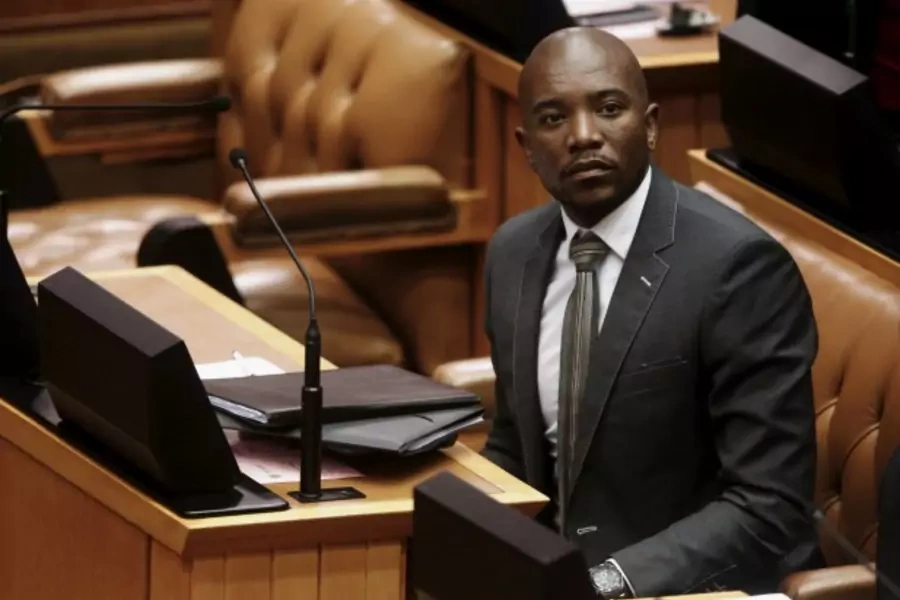More on:
Last week, the Constitutional Court ruled that President Jacob Zuma and the National Assembly had violated the constitution with respect to the use of public money on the president’s Nkandla private estate and their collective failure to implement the ruling of the public protector. In the wake of that decision, Mmusi Maimane, leader of the opposition Democratic Alliance (DA), tabled a motion on the National Assembly to impeach the president. National Assembly Speaker Baleka Mbete scheduled debate on the impeachment motion for today, April 5. Conventional wisdom that the ANC’s overwhelming majority in the National Assembly would protect Zuma from impeachment proved correct, and the motion was defeated.
Preliminary analysis indicates that all or almost all of the votes against impeachment came from the ANC. Despite today’s vote, the Constitutional Court’s ruling has weakened the president within the ANC. Trevor Manuel, the retired, highly respected finance minister and a long-time leader of the ANC, today added his call for Zuma to step down.
Bloomberg, citing the South African newspaper Rapport, reports that on April 3, five ANC leaders called on Zuma to ask him to resign. (Rapport is a weekly Afrikaans-language newspaper that claims to reach 20 percent of that language’s demographic; it appears on Sunday.) According to Bloomberg, Rapport, citing unidentified sources, reports that Zuma refused, and the group concluded that Zuma would go only after the local government elections later this year.
The five are ANC heavy hitters. They are Deputy President Cyril Ramaphosa, Secretary-General Gwede Mantashe, Deputy-Secretary General Jessie Duarte, ANC Treasurer Zweli Mkhize, and National Assembly Speaker Baleka Mbete, who is also ANC chairwoman. Ramaphosa was a lead negotiator of the transition to non-racial democracy and is said to have been Mandela’s personal choice as his successor; the ANC, however, preferred Thabo Mbeki. Ramaphosa stepped aside and went into private business. He remains close to big business and is a multimillionaire. While he is frequently mentioned as a possible successor to Zuma, he is more popular in London and New York business circles than among ANC party members. Mantashe, a former chairman of the South African Communist Party, has in the past rejected calls for Zuma to step down, but he has also opposed the powerful role of Zuma cronies like the Gupta brothers. He recently accused the U.S. Embassy in Pretoria of working for “regime change” through its exchange programs. Jessie Duarte was Nelson Mandela’s personal assistant after his release from prison. Zweli Mkhize, a medical doctor, has been accused—but not convicted—of misusing public funds. As speaker of the National Assembly, Baleka Mbete was directly involved in the vote to set aside the ruling of the public protector. The DA is calling for her to resign, too. She has refused to do so, and she did not recuse herself from the April 5 debate over the motion to impeach Zuma.
“The gang of five” that visited Zuma on Sunday, now joined by Trevor Manuel, would seem to indicate that the president’s position within the party is eroding rapidly. As for the markets, they do not seem to be happy that Zuma stays, at least for the time being. The national currency, the rand (ZAR), dropped up to 2.6 percent on the news of the vote.
Eyes are on the upcoming local elections, especially in Johannesburg, Pretoria, and Port Elizabeth. Of the three, the ANC seems especially vulnerable in Johannesburg. More generally, at least some South Africans are seeing a parallel between Zuma’s current travails and Richard Nixon’s last days as president.
More on:
 Online Store
Online Store

